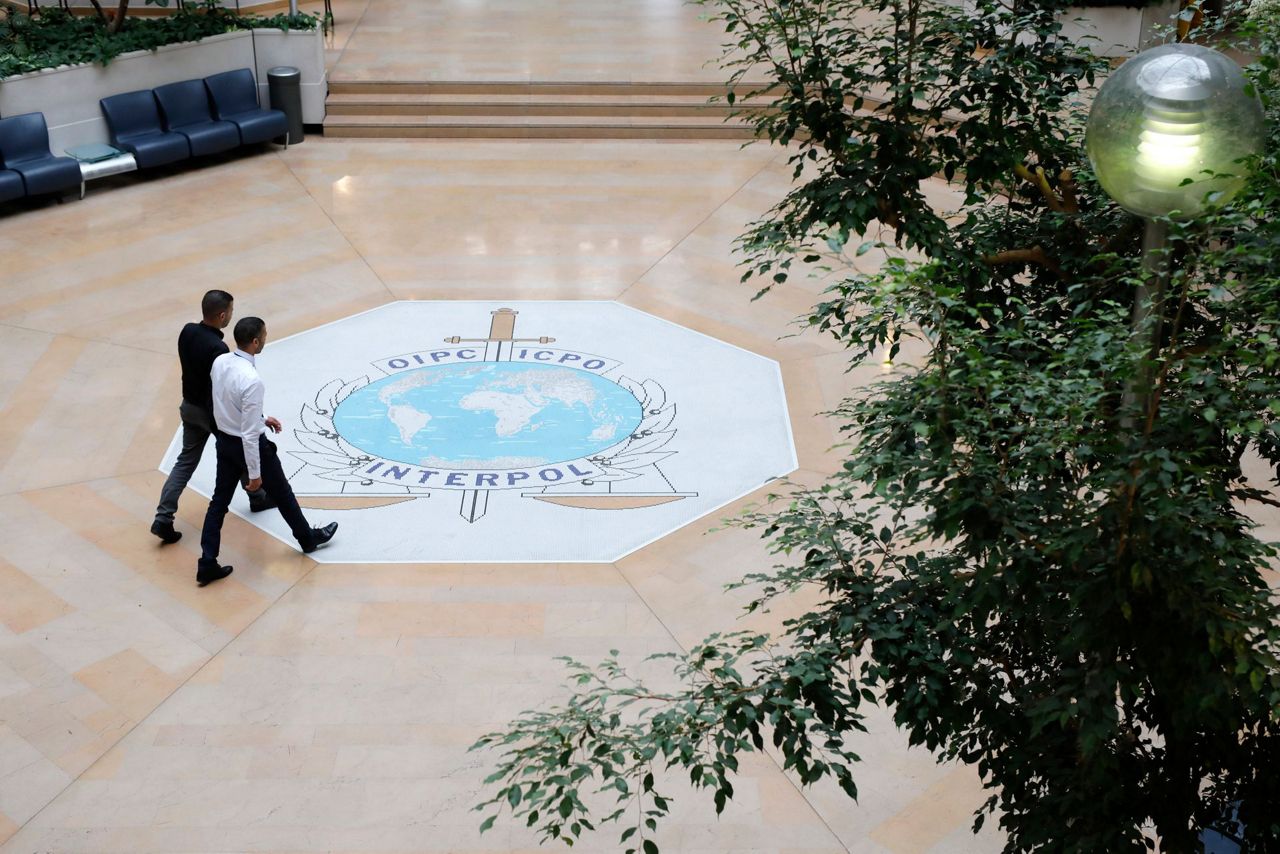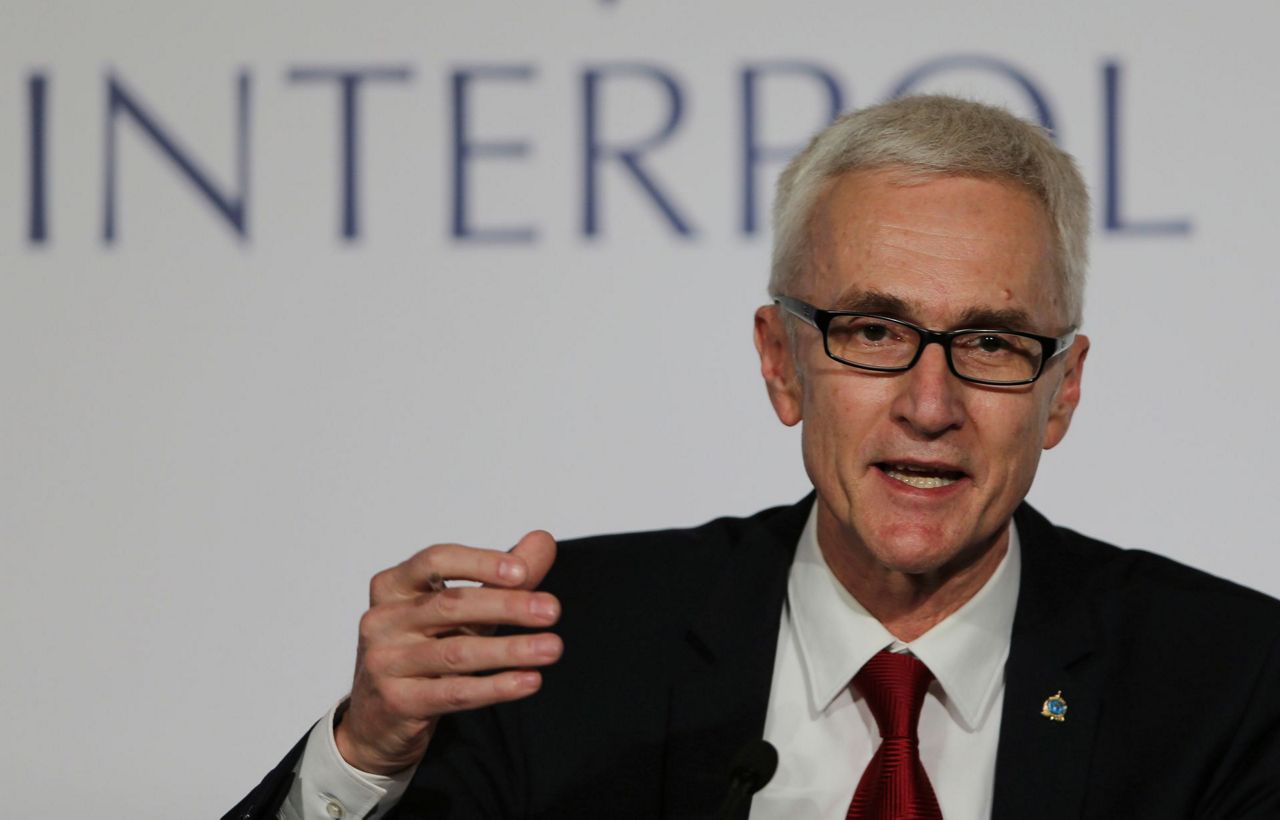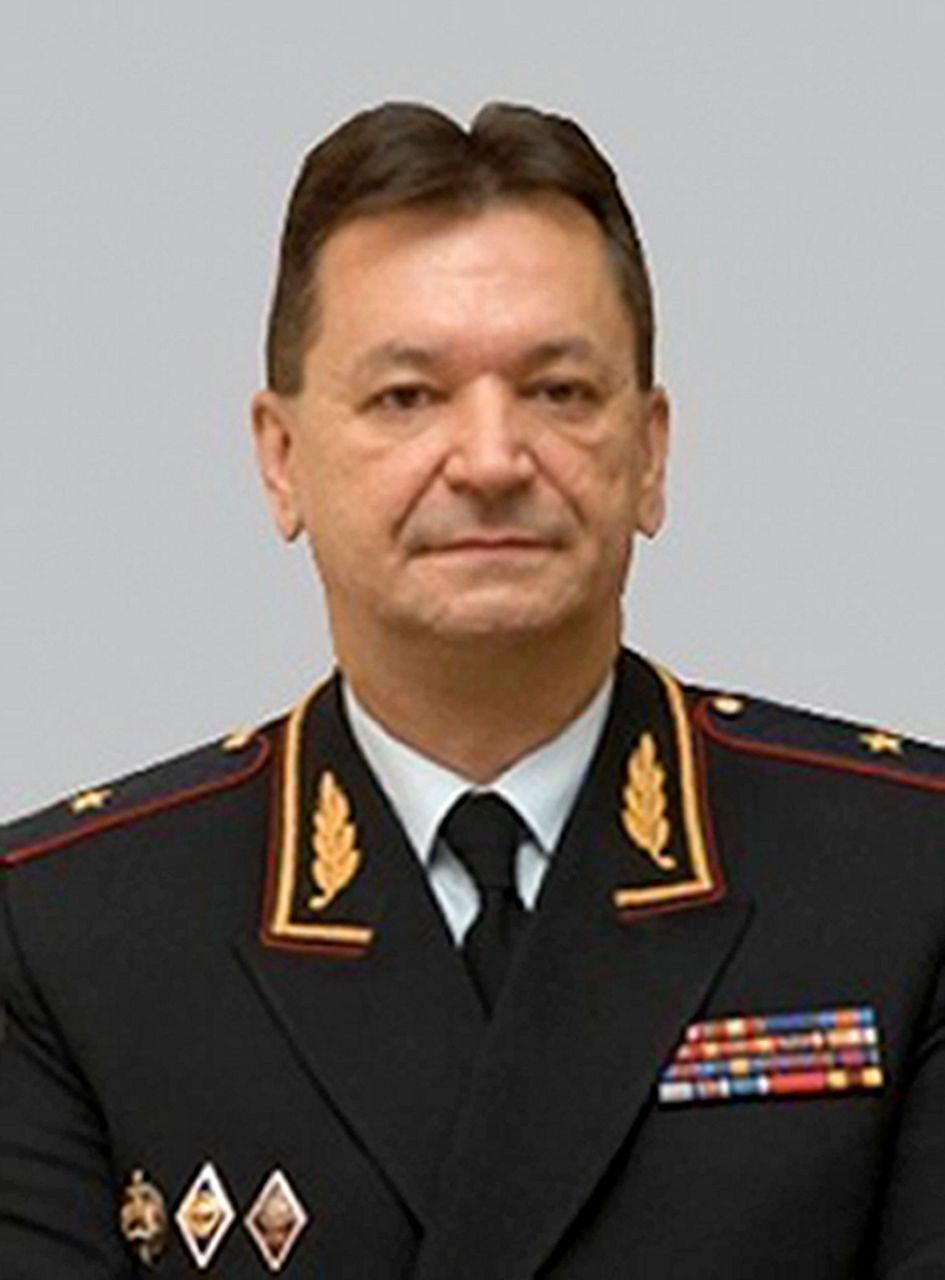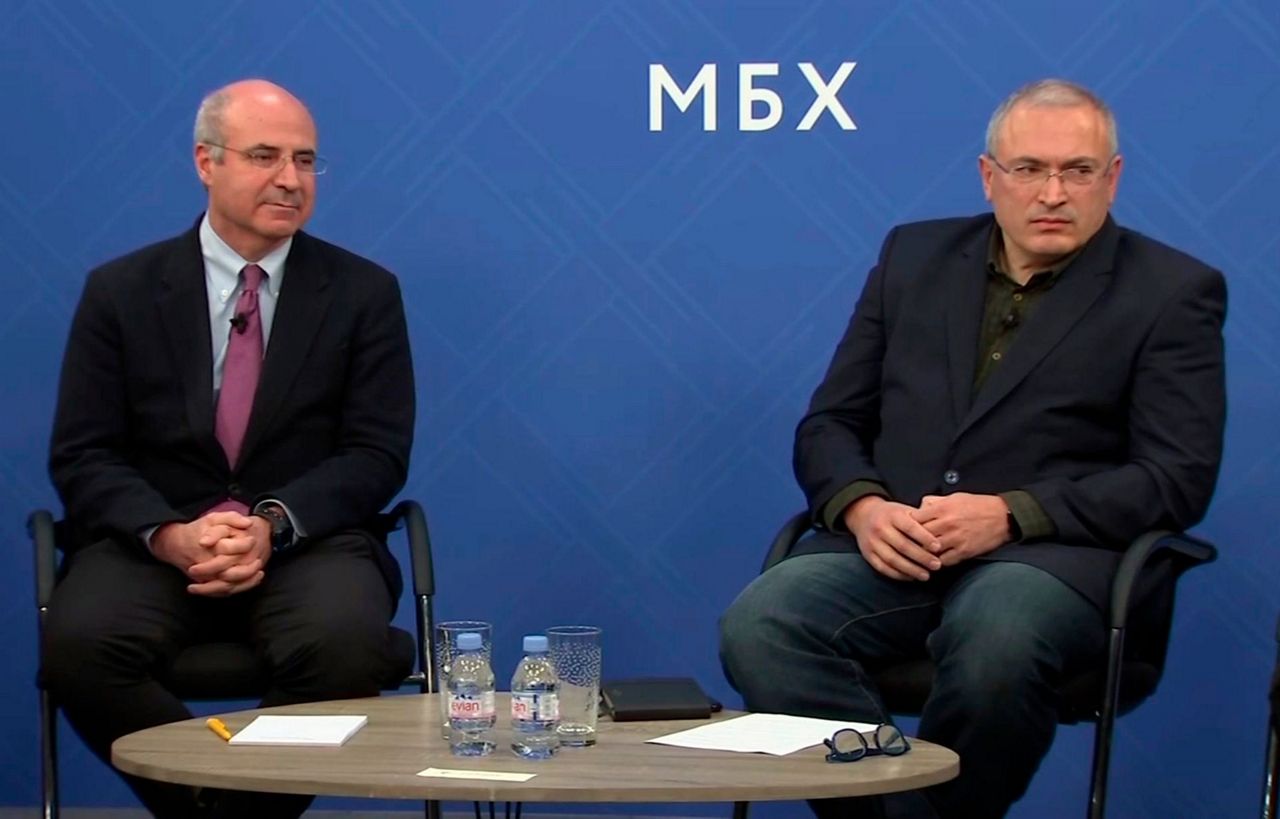DUBAI, United Arab Emirates (AP) — The U.S. won, Russia lost and Interpol narrowly escaped disaster — that's the upshot of an unusually high-drama vote for the international police agency's president, dominated by fears that Russia wants to turn Interpol into a tool to hunt down its enemies.
While rights groups and Kremlin critics celebrated the surprise victory of South Korean candidate Kim Jong Yang over his Russian rival, the vote exposed flaws within Interpol that won't vanish overnight. Now the pressure is on Kim and Interpol's day-to-day boss, Secretary-General Juergen Stock, to fix them.
The White House came out publicly against the candidacy of Kim's Russian rival, Alexander Prokopchuk. After the election, Secretary of State Mike Pompeo called Kim "the right man to lead one of the world's most critical law enforcement bodies in its mission to preserve the rule of law and make the world a safer place."
For Interpol, the vote staved off possible collapse, after rumblings from some member countries about quitting the agency.
The vote shows that members "thought really hard about whether they want to back away from this institution or make sure it's run properly and operate fairly,"said Jago Russell, chief of Fair Trials International, which has championed and monitored Interpol's reform efforts.
Authoritarian governments have long sought to leverage Interpol's reach — and notably its system of "red notices" that flag suspects for arrest wherever they go — for political ends. While it has tried to clean up this system, it remains vulnerable to pressure from powerful member states: Its last president vanished in China in a possible political purge, while Interpol quietly looked on.
Stock, the secretary general, acknowledged that "systems can be improved" but stressed that Interpol's information-sharing systems have led to the arrest of 10,000 serious criminals so far this year. "It is fundamental to Interpol's existence that we are neutral and that we are independent," he insisted.
That was a central argument for the U.S. and governments in Europe and elsewhere who lobbied against Russian security service veteran Prokopchuk. The Western powers warned that a Russian victory would have led to further abuses of Interpol by the Kremlin, seeking to go after political opponents and fugitive dissidents.
Russia accused its critics of overly politicizing the vote and campaigning to discredit Prokopchuk, calling him a respected professional. Russian officials were subdued in their response to the vote, and it got only modest attention in the state-dominated media.
South Korea's government called Kim's election a "national triumph" that could elevate the country's international standing. Kim secured at least two-thirds of votes cast at Interpol's general assembly in Dubai, though the agency does not release how member states voted.
The new president is unlikely to make immediate change, though. Kim had already been the acting president, and Interpol's president has more of an oversight role than a hands-on position. Meanwhile, Prokopchuk will remain an Interpol vice president.
But watchdog groups say there's no time to lose.
"Interpol has for too long traded on its James Bond image, the global good guys fighting crime," said Russell of Fair Trials International. "That reputation needs to be underpinned with meaningful rules to prevent abuse. ... I hope that this vote further focuses the mind on the need to do that."
Kim will serve until 2020, completing the four-year mandate of his predecessor, Meng Hongwei, who was detained in China as part of a wide anti-corruption sweep there.
Based in the French city of Lyon, the 95-year-old policing body is best known for its "red notices" that identify suspects pursued by other countries, effectively putting them on a global "most-wanted" list.
Critics say countries like Russia, Turkey, Egypt, Iran and China have used the system to try to round up political opponents, journalists or activists. Interpol's rules prohibit the use of police notices for political reasons, and the agency has toughened rules to enforce that.
However, countries can issue requests — known as "diffusions" — that flag a person wanted for arrest, before Interpol reviews the notice, leading to what critics say is a major loophole in the system.
"We accept the fact that systems can be improved and recognize that a very small number of noncompliant red notices can seriously affect the lives of innocent citizens," Stock said.
Bill Browder, who runs an investment fund that had once operated in Moscow, says Russia used the diffusion system against him, which led to his brief arrest in Spain earlier this year.
Lawyers who have championed Interpol reform also welcomed the vote, as did Amnesty International's Denis Krivosheev, who said, "If Russian law enforcement agencies engage in abusive practices, then the country pays with its reputation, and this is a stark reminder of it. To Russia it matters a lot, and this is obviously quite embarrassing."
___
Charlton reported from Paris. Associated Press writers Nataliya Vasilyeva in Moscow and Danica Kirka in London contributed.
Copyright 2018 The Associated Press. All rights reserved. This material may not be published, broadcast, rewritten or redistributed.







